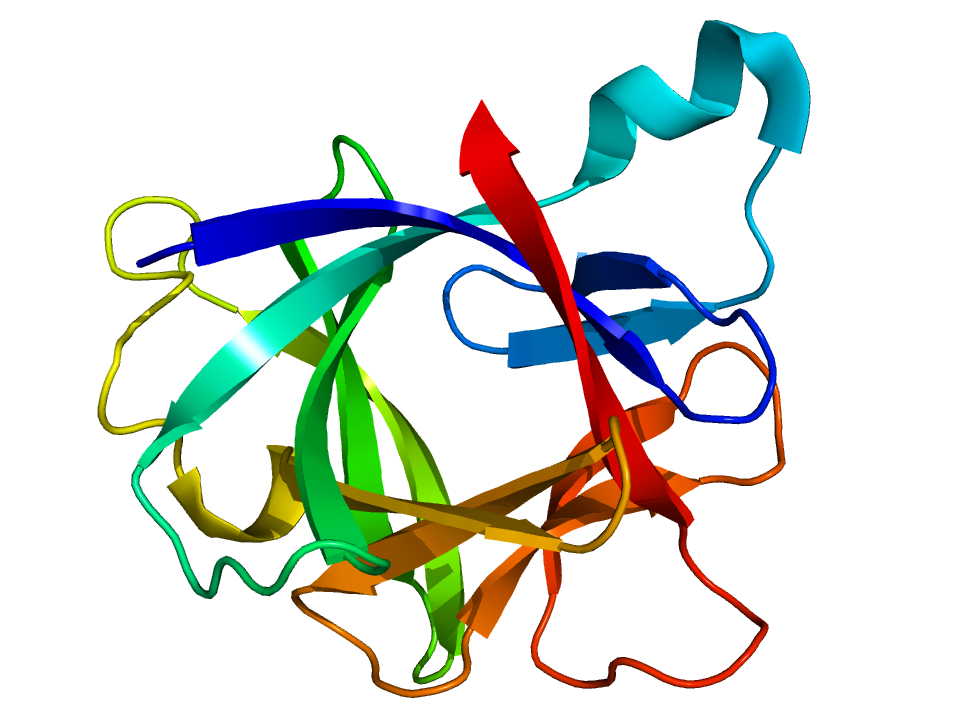Researchers Discover As To How Immune Protein IL-1b Is Made In The Body, Paving The Way For New Approaches In Autoimmune Diseases
Source: Thailand Medical News Dec 18, 2019 6 years, 2 months, 4 days, 15 hours, 37 minutes ago
Researchers at Cincinnati Children's Hospital Medical Center describe in
Nature Immunology an entirely new molecular process that triggers T cell-driven inflammation and causes different
autoimmune diseases. The team say their data have implications for Multiple Sclerosis, Type 1 diabetes and Inflammatory Bowel Disease. It also will help efforts to find better treatments for
autoimmune disease, still an urgent need in medicine.

Immune Protein IL-1b
Lead investigator Dr Chandrashekhar Pasare, DVM, Ph.D., a member of the Division of Immunobiology at Cincinnati Children's and co-director of the Center for Inflammation and Tolerance, told
Thailand Medical News, "This study opens new avenues for developing more effective
autoimmune therapies. To this end, we now are testing the molecular process we identified in different kinds of human cells, including building collaborations with other researchers to collect donated cell samples from people who have multiple sclerosis, arthritis and other
autoimmune diseases."
In the last few decades, scientists and physicians have linked the
immune system protein IL-1b (
cytokine interleukin-1 beta) with several
autoimmune diseases. Drugs and antibodies that block or inhibit
IL-1b are currently used to manage symptoms in people with different types of
autoimmune disease, according to researchers.
Till the current study, it wasn't known how
IL-1b is made in the body, especially during autoimmunity. This limits the ability to develop effective therapeutics for
autoimmune diseases, according to researchers.
In the past, it was thought that
IL-1b production required activation of a group of i
mmune system protein molecules that make up structures called
inflammasomes. It turns out the
inflammasomes, which act as system sensors that activate inflammation, can cause what are called auto-inflammatory diseases. These are distinct from
autoimmune diseases.
Dr Pasare and his colleagues found out that instead of
inflammasomes, a different molecular pathway cranks up inflammation during autoimmunity while working completely independently from
inflammasomes. That molecular process was triggered by interactions between myeloid cells and CD4-positive T cells, which become primed to attack harmful bacteria, viruses and other microorganisms. Unfortunately, in the case of autoimmunity, the immune system attacks and eventually destroys healthy tissues erroneously targeted as harmful.
During the time it's not fulfilling its role in driving autoimmunity,
IL-1b usually works as a stimulator o
f anti-microbial immunity. But during
autoimmune processes, the authors report they discovered in their mouse models that autoreactive T cells, macrophage and dendritic cells in the immune system work through two other molecules TNF (tumor necrosis factor) and FasL (fas ligand) to produce overabundant amounts of
IL-1b.
Dr Pasare explained, "This means our findings have two previously unknown implications. We show for the first time that
IL-1b can be made in the absence of infection and that T cells are major drivers of
IL-1b in an
autoimmune setting."
The recent study also underscores that therapies targeting
IL-1b production by
inflammasomes are going to be limited in their effectiveness in treating
autoimmune disease. This is because the Pasare team's findings show that auto-reactive T cells have their own mechanisms to drive inflammation and work independently of
inflammasomes.
Dr Pasare said that targeting the TNF and FasL pathway of
IL-1b production is more likely to be an effective way of treating
autoimmune diseases in humans.
The medical researchers stressed that because the preclinical findings were obtained by studying laboratory models, it is still too early to determine whether the results will translate to treating patients in clinic. A great deal of additional preclinical research is needed first. Anti-TNF therapies are already used in the clinic for some
auto-immune diseases, and additional blockade of FasL, as suggested in the current study, may be a more effective way of treating
auto-immune diseases. Pasare and his collaborators will continue to test this in their preclinical models.
Reference : Jain, A et al. T cells instruct myeloid cells to produce inflammasome-independent IL-1β and cause autoimmunity. Nat Immunol 21, 69 (2020) DOI: 10.1038/s41590-019-0559-y
